AZARE | APPLICATION CENTER FOR ALL RENEWABLE ENERGIES TO DECARBONISE TRAFFIC, BUILDINGS AND INDUSTRY
Our vision: The Rhine-Main region becomes a European leader for sustainable and systemic energy solutions
The aim of AZARE is to support stakeholders who are involved in the ramp-up of an emission-free industrial society with a focus on the decarbonisation of mobility, buildings and production in overcoming technical, socio-economic and economic challenges. The expertise of the professors at RheinMain University of Applied Sciences (HSRM) will be used to investigate all aspects – socio-economic, economic and technical – and to develop solutions with the partners. Research questions of social relevance take centre stage.
The holistic approach pursued by the research centre is based on the energy-efficient use of electricity, heat and fuel (hydrogen, SAFs, RNBOs) generated from renewable energies, their use and storage while avoiding harmful emissions and greenhouse gases. The aim is to transform the current energy system to maximise the use of renewable energies and to bring them together systemically via sector coupling. Together with HSRM researchers and in collaboration with partners, we analyse the relevant research questions and develop solutions. Thanks to the diverse expertise and research orientations of our members, we cover many areas of energy conversion technologies and their social requirements. These include basic enabling technologies as well as securing and designing infrastructures. The AZARE application centre is a platform for researchers, SMEs, industry and start-ups with a focus on engineering sciences. Through co-operation with local industry, politics (state of Hesse), the city of Rüsselsheim and others, an active network for solving upcoming energy issues is being established.
AZARE starts where basic research leaves the laboratories and develops these approaches further up to the preliminary stage of competitive implementation. In addition to the researchers, students in the relevant subject areas are also involved so that they learn how to implement technologies in a practical way.
Our competences
We provide support in the search for, application for and realisation of research projects (third-party funding, contract research, transfer projects) in the fields of mobility, buildings and production. For us, this means
- We search for suitable funding programmes, prepare their contents and forward them to the scientists and our partners.
- We provide support from the preparation of the application to the submission of the project proposal.
- We take care of the entire administrative process as well as controlling and monitoring.
- We act as an interface between the funders, the internal third-party funding department and the project managers.
- We promote, support and accompany spin-offs.
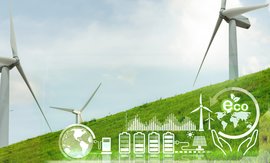
The transition from a fossil-fuelled to an emission-free energy system is essentially based on the use of energy generated from the sun, wind, waste and water. There is a need for action with regard to the transformation of the current energy system in areas such as
- mobility,
- industrial applications and production,
- buildings.
AZARE's research activities are driven by the need to enable social access to sustainable and resource-efficient energy utilisation for all those involved in the process. Above all technical approaches we prioritise:
- Avoidance of harmful environmental impacts: The use of renewable energies can be accompanied by environmentally harmful effects that must be avoided.
- Sustainability: Low energy and material consumption.
- Avoidance of critical raw materials: Social responsibility in the extraction of critical raw materials and avoidance of child labour.
- Recyclability: Recyclability of the materials used in the sense of a circular economy.
Generating electricity from renewable energies is not continuous. It has peaks and troughs. Therefore, storing it and feeding it evenly into the electricity grid is a key issue for the success of the energy transition. The focus is on the technologies power-to-power, power-to-heat and power-to-X (synthetic fuels, hydrogen) to generate electricity and heat from renewable energy sources.
Power-to-Power
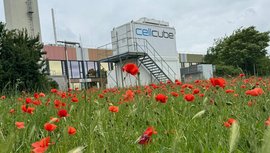
In power-to-power technology (electricity to electricity), surplus energy is stored in batteries, as fuel or via hydropower so that it can be utilised at a later date. A distinction is made between short-term and long-term storage.
In the short term, electricity from photovoltaics or wind energy can be temporarily stored in lithium-ion or redox flow battery storage systems in order to maintain the electrical grid during periods of low yield, for example in the evening and at night.
Long-term storage of electrical energy is another option. Electrolysis can be used to generate excess electricity to produce hydrogen, which can be temporarily stored as fuel. If the electricity requirement or local demand (megacharger) exceeds the available supply in the grid, electricity can be generated and fed back into the grid using fuel cells – by utilising the chemical reaction of hydrogen with oxygen from the air.
Contact:
Prof. Dr. Wilfried Attenberger, expert in grid stabilisation and power electronics
Prof. Dr. Mousa Lahdo, expert for the integration of vehicles into infrastructures
Prof. Dr. Volker Pitz, expert for electrical energy technology
Power-to-Heat

The aim of heating research in buildings is to reduce Germany's dependence on fossil fuels, i.e. gas, oil and lignite, and to realise the transition to climate-neutral heating and cooling. For the transformation to succeed, new technologies and processes such as power-to-heat and maximum utilisation of district heating integration are required.
With power-to-heat, electricity generated from renewable sources is converted into heat (heat pump, short-term) or, for example, heat and electricity are generated by means of cogeneration using a fuel (hydrogen, long-term) in order to heat buildings.
Research topics include the recycling of waste heat into the energy cycle, intelligent control technologies and the development of thermal storage systems.
Contact:
Prof. Dr. Stefan Rusche, expert for thermal storage systems
Prof. Dr. Thomas Heimer, expert for decarbonisation in the transport and building sector
Power-to-X
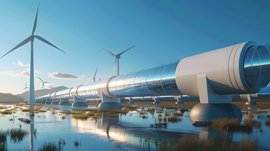
The conversion of electricity into chemicals, fuels and combustibles, such as hydrogen, ammonia, methanol, ethanol, natural gas, liquid organic hydrogen carriers (LOHC), sustainable aviation fuels (SAFs), renewable fuels of non-biological origin (RNBO), etc., is known as power-to-X. By enabling the long-term storage of electricity in fuels and chemicals, Power-to-X is helping to significantly influence the energy transition.
Contact:
Prof. Dr. Birgit Scheppat, expert for storage and grid stabilisation (systemic approaches to the energy system)
Prof. Dr. Thomas Heimer, expert for decarbonisation in the transport and building sector
Infrastructure for a secure and sustainable energy supply
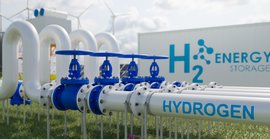
We believe that the availability of electricity and heat in line with demand at any place and at any time is the basis for a functioning industrialised society. The existing energy system must be designed to be reliable, stable and secure when integrating weather-dependent forms of energy such as solar and wind in order to achieve social and industrial acceptance. This results in the need for storage in chemical or electrical form and, in particular, raises the question of how the electrical grids can remain stable in times of power peaks and how the grids can be stabilised in times of power lulls.
In view of these issues, AZARE is developing approaches for infrastructures so that the transport, distribution and storage of electricity, fuels and gas are ecologically and economically feasible.
Contact:
Prof. Dr. Wilfried Attenberger, expert in grid stabilisation and power electronics
Prof. Dr. Matthias Kowald, expert in the study of mobility behaviour and the necessary mobility infrastructure
Prof. Dr.-Ing. Mousa Lahdo, expert for the integration of vehicles into infrastructures
Prof. Dr. Birgit Scheppat, expert for storage and grid stabilisation (systemic approaches to the energy system)
Prof. Dr. Heinz Werntges, expert in building automation and grid integration of electric vehicles
E-mobility
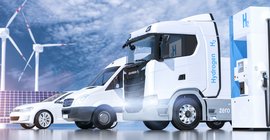
E-mobility will play an increasingly important role in the coming years and must be understood and partially rethought in all aspects – from technical to economic. It is a crucial component for the decarbonisation of transport (phasing out fossil fuels). In order to increase the general acceptance of the technologies, application-oriented research is needed to remove existing obstacles, such as the lack of infrastructure for charging points and petrol stations, including local power grids. This includes issues relating to vehicles, vehicle fleets and supply chains. The use of the optimal mode of transport for the transport of people and goods – by bike, bus, train, car, lorry, train, plane or else – must be considered holistically in terms of costs and sustainability. Furthermore, there is currently a lack of knowledge about incentives and structures for an economic transport transition. Supporting partners from industry and politics in deriving and utilising such approaches for the transport transition is also one of AZARE's tasks.
With its research projects, the AZARE team supports the development of e-mobility applications and logistics concepts in terms of efficiency and sustainability and investigates possibilities for providing energy for on- and off-road vehicles.
Contact:
Prof. Dr. Christian Grotemeier, expert for mobility management
Prof. Dr. Thomas Heimer, expert for decarbonisation in the transport and building sector
Prof. Dr. Matthias Kowald, expert in the study of mobility behaviour and the necessary mobility infrastructure
Prof. Dr.-Ing. Mousa Lahdo, expert for the integration of vehicles into infrastructures
Prof. Dr. Manfred Loidold, expert for emission-free road freight transport and logistics
Industrial sectors that are difficult to decarbonise

Decarbonisation and defossilisation = abandonment of fossil fuels and gas
Synthetic fuels
Aviation, shipping and off-road vehicles are among the industrial sectors that are difficult to decarbonise. Therefore, in addition to choosing the right mode of transport, the use of synthetic fuels also plays an important role in reducing pollutant emissions. Synthetic fuels can be produced using CO2 sources and green hydrogen. The use of these fuels is critical, as the overall efficiency is low due to the many conversion stages in the production process and the processes are expensive.
AZARE is analysing the technical, economic and legal options for supporting the market ramp-up of synthetic fuels in the areas mentioned.
Aviation
The continuous increase in greenhouse gases in air traffic is in contradiction to the goal of making flying climate-neutral by 2050. While the use of electrically powered aircraft would be possible for short distances of up to a few hundred kilometres, it is not suitable for long and medium-haul flights due to the low energy density (kWh per kilogram or per litre). New technologies or fuels are required – such as sustainable aviation fuels (SAFs), renewable fuels of non-biological origins (RNBOs) and others.
Shipping
Both inland and ocean shipping should achieve climate neutrality by 2050. It is therefore essential to switch to the use of synthetic fuels such as methanol, ethanol, liquid organic hydrogen carrier (LOHC), ammonia and liquid hydrogen (LH2).
Off-road transport
For off-road vehicles such as construction site vehicles, cranes, etc., electric or hydrogen-powered vehicles should be considered depending on the available terrain and infrastructure access.
Contact:
Prof. Dr. Martin Müller, expert for aviation
Prof. Dr. Thomas Heimer, expert for decarbonisation in the transport and building sector
Prof. Dr. Birgit Scheppat, expert for storage and grid stabilisation (systemic approaches to the energy system)
Qualification and Safety

AZARE imparts state-of-the-art technical and safety-related knowledge in various formats for the entire renewable energy value chain. From production, distribution and utilisation to the framework conditions, AZARE is actively involved in training and further education. Among other things, an understanding of the relevant standards is taught and practical training is provided in the university's laboratories.
Companies and their employees must be sensitised to the use of renewable energy sources and their derivatives. Safety risks include, for example, high voltage in batteries, toxicity of chemical fuels (ammonia, methanol) and handling flammable gases (e.g. hydrogen). In the safety qualification programme, participants are trained in safety measures for different classes of pollutants, toxicity and flammability in order to protect people, systems and the environment.
Contact:
Prof. Dr. Birgit Scheppat, expert for storage and grid stabilisation (systemic approaches to the energy system)
Cross-sectional functions
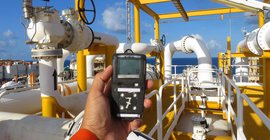
Important aspects with regard to hydrogen are safety and quality in terms of H2 concentration. Sensors are used, for example, to carry out purity and pressure measurements as well as leak tests and to measure fill levels in tanks. Sensors should be robust, reliable and safe, have a long service life and show no signs of ageing or drift in the sensor characteristic curve. All these factors are critical in terms of size and weight, production figures and costs.
Other cross-sectional functions include the modelling of physical-technical structures or dynamic systems, programming of human-machine interfaces, material flow simulations and the design of manufacturing processes.
AZARE analyses, for example, whether a special sensor is required for the respective application and supports companies in the development process.
Contact:
Prof. Dr. Markus Bender, expert for microtechnical sensors
Prof. Dr. Peter Dannenmann, expert in functional safety and human-machine interfaces
Prof. Dr. Edeltraud Gehrig, expert in mathematical description and modelling of physical-technical structures and dynamic systems
Prof. Dr.-Ing. Christian Glockner, Expexpert in digital factory planning
Prof. Dr. Birgit Scheppat, expert for storage and grid stabilisation (systemic approaches to the energy system)
Socio-economics

In the long term, Europe has decided to phase out fossil fuels and transform its energy system towards renewable energy. Added to this are the Sustainable Development Goals (SDGs) set by the United Nations in 2015, through which countries around the world have committed to eradicating poverty, finding sustainable and inclusive development solutions, guaranteeing the human rights of all and generally ensuring that no one is left behind by 2030. The EU is committed to implementing the Sustainable Development Goals in all policy areas. In order to successfully implement the transformation, it must be organised in a socially responsible manner and the various stakeholders must be involved.
Research topics include public acceptance, human preferences and the economic impact on different social groups.
Contact:
Prof. Dr. Thomas Heimer, expert for decarbonisation in the transport and building sector
Prof. Dr. Matthias Kowald, expert in the study of mobility behaviour and the necessary mobility infrastructure
Reference Projects
- Switch of the Hessian Police to Electromobility
Since 2024
Systematic analysis of the various official mobility requirements (routes taken in the course of various police activities) and the derivation of specific requirements for infrastructure and other resources
- InnoFuels
Since 2023
Analysing the market and regulations for synthetic fuels with the aim of networking, further development and the creation of framework conditions
- Optimus
Since 2021
Development, optimisation and application of PCM emulsions with high thermal storage density
- eCARe – Integrated technical process-based charging management concept for e-vehicle logistics
2021 – 2022
Development of a charging management concept for distribution and fleet operators of electric vehicles
- cleanEngine
2020 – 2024
Realisation of a development platform by coupling virtual and real methods
- HYWHEELS
2020 – 2021
Feasibility study on hydrogen-based commercial transport in eastern Hesse to reduce emissions in logistics and road transport
- Development of an innovative system for pressure-neutral high-voltage systems under water without mechanical switiching contacts (DNH)
2019 – 2023
Collecting technical data on the electrical ehaviour of potted high voltage components under high electrical stress in a high pressure water environment, identifying usable materials and suitable design techniques for pressure neutral high voltage assemblies and creating a fully functional demonstration unit.
- DIESELFREI
2019 – 2021
Direct testing of thermal storage in electric buses to reduce immissions
- CLEVER! Electric City Rüsselsheim
2018 – 2020
Development of a low-energy charging infrastructure for the city of Rüsselsheim
Prof. Dr. Birgit Scheppat
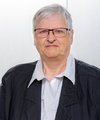
Director Research Center
Phone +49 6142 898-4611
Mobile +49 170 9905050
Email: birgit.scheppat(at)hs-rm.de
Prof. Dr. Wilfried Attenberger

Professor for Power Electronics and Electrical Drives
Phone +49 6142 898-4285
Email: wilfried.attenberger(at)hs-rm.de
Prof. Dr. Markus Bender

Professor for Micro- and Nanotechnologies
Phone +49 6142 898-4530
Email: markus.bender(at)hs-rm.de
Prof. Dr. Peter Dannenmann

Professor for Engineering Informatics
Phone +49 6142 898-4494
Email: peter.dannenmann(at)hs-rm.de
Prof. Dr. Edeltraud Gehrig

Professor for Applied Mathematics
Phone +49 6142 898-4461
Email: edeltraud.gehrig(at)hs-rm.de
Prof. Dr.-Ing. Christian Glockner

Professor for Production Technologies and Machine Tools/CAM
Phone +49 6142 898-4386
Email: christian.glockner(at)hs-rm.de
Prof. Dr. Christian Grotemeier

Professor for Mobility Management and Business Studies
Phone +49 611 9495-1547
Email: christian.grotemeier(at)hs-rm.de
Prof. Dr. Manfred Loidold

Professor for Geoinformatics and Surveying
Tel. +49 611 9495-1466
Email: manfred.loidold(at)hs-rm.de
Prof. Dr.-Ing. Stefan Rusche

Professor for Heating and Cooling Technologies
Tel. +49 6142 898-4324
Email: stefan.rusche(at)hs-rm.de
Prof. Dr. rer. nat. Ulrike Stadtmüller

Professor for Process Engineering and Biotechnology
Phone: +49 6142 898-4654
Email: prodekanin-ing(at)hs-rm.de
- Nutzungskonkurrenzen beim Wasserverbrauch durch PtL-Verfahren
Studie der Arbeitsgruppe „Markt & Regulierung“ des Forschungsprojekts InnoFuels (December 2024)
- Standortanalyse für die Kohlenstoffbereitstellung zur Herstellung von reFuels in Deutschland
Studie im Rahmen des Projektes InnoFuels, ISP 7 (August 2024)

Prof. Dr. Birgit Scheppat
Director Research Center
Phone: +49 6142 898-4611
Mobile: +49 170 9905050
Email: birgit.scheppat(at)hs-rm.de
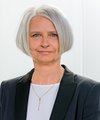
Dr. Berit Kirchhoff
Assistance to the Centre Management and Third-Party Funding
Phone: +49 6142 898-4612
Email: berit.kirchhoff(at)hs-rm.de

Michaela Kreuzpointner
Marketing und Public Relations
Phone: +49 6142 898-4613
Email: michaela.kreuzpointner(at)hs-rm.de
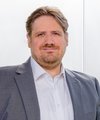
Matthias Werner
Research and Project Proposals
Phone: +49 6142 898-4608
Email: matthias.werner(at)hs-rm.de
The external advisory board consists of representatives from companies, state and local politics, civil society organisations and science. It supports the Application Centre in the strategic direction of its activities, helps to identify the most important fields of research and contributes to identifying and addressing the challenges and opportunities in the fields of technology.
Members of the external advisory board
Prof. Dr. Thomas Bayer, Provadis Hochschule
Patrick Burghardt, Mayor of Rüsselsheim
Martin Heindl, VKU – Verband kommunaler Unternehmen
Jörg Höhler, DVGW – Deutscher Verein des Gas- und Wasserfachs
Dr. Andreas Hoffknecht, DB Energie GmbH
Robert Lippmann, IHK Darmstadt
Michael Ludwig, VDI Rheingau-Bezirksverband e. V.
Sabine Meder, IHK Wiesbaden
Prof. Dr. Tobias Melz, Fraunhofer LBF
Astrid Messmer Rodriguez, Deutsche Lufthansa AG
Dr. Dirk Rensink, Segula Technologies
Jürgen Schmidt, ÜWG Überlandwerk Groß-Gerau GmbH
Ulrich Schmidt, MEWA Textil-Service SE
Alexander K. Steinberg, Spedition Edgar Graß
Dr. Silke Wagener, Freudenberg Technology Innovation
Klaus-Peter Willsch, Member of the German Bundestag for the Constituency Rheingau-Taunus/Limburg CDU
AZARE – RheinMain University of Applied Sciences
Campus Rüsselsheim
Building A, rooms A010 und A011
Am Brückweg 26
65428 Rüsselsheim
Location and directions
![[Translate to English:] Das Forschungszentrum AZARE mit seinen Bereichen [Translate to English:] AZARE mit Bereichen](/fileadmin/_processed_/2/5/csm_Moos_mit_Tropfen_neu_06106cd8bd.png)




